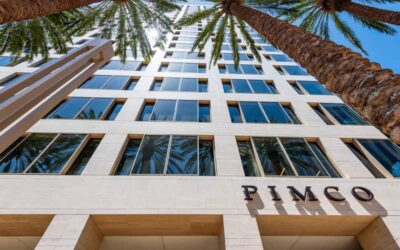When news leaked last October that beverage giant Coca-Cola was looking to discontinue its Zico coconut water brand as part of a broader culling of its portfolio, private-equity investor Mark Rampolla couldn’t wait to pick up the phone.
Just a few months later, Zico, the distant No. 2 brand in the coconut water space behind Vita Coco, is coming back to a familiar former home. Coca-Cola is selling the beverage to a firm co-founded by Rampolla, the brand’s creator, for an undisclosed amount.
“I always knew if Coke ever did lose interest in it or decide to do something with it I certainly would be open to doing this again,” Rampolla said. “The feeling was this is meant to be. It felt like there are just too many circumstances to line up that make me feel this is the inevitable path of Zico.”
Rampolla first discovered coconut water and its natural replenishing properties as a Peace Corps volunteer in Central America in 1994. He started Zico a decade later above the garage of his New Jersey home. At the time, the market in the U.S. hadn’t really taken hold and was populated by smaller offerings from companies such as Goya and premium waters being imported from Brazil. Five years later, Rampolla sold a minority stake in Zico to Coca-Cola for $15 million before the beverage giant acquired the rest in 2013.
Zico will be added to the portfolio of PowerPlant Ventures, an equity fund Rampolla co-founded in 2015 that has invested in companies including Beyond Meat, Apeel Sciences and Just. PowerPlant, which is only acquiring the Zico brand name from Coca-Cola, will spend the first year reviewing the business, reestablishing relationships with suppliers and building up production, Rampolla said. As this occurs, Rampolla expects “minimal” disruptions in supply of the product — a similar message posted by the brand on its website.
The purchase of Zico comes as the once-hot coconut water category has fallen sharply from its peak just a few years ago, under heavy competition from other healthy beverage options. Retail sales of coconut and other plant waters declined to $582.8 million in 2020, down nearly 14% from 2015, according to Euromonitor International. Sales of coconut water did rebound last year during the pandemic as consumers boosted their consumption of better-for-you offerings.
Rampolla is optimistic the category has more room to grow and that it remains relevant with health-focused consumers. He believes Zico would benefit under the ownership of his venture fund, which can move more quickly than a large CPG like Coca-Cola, and comes with the money, resources and team in place to invest in the business. PowerPlant Ventures also can use the expertise it has amassed through its other investments and tap into resources from these businesses to grow Zico.
“Coke was probably losing interest in the brand some time ago,” Rampolla said. Emerging brands are “not Coke’s sweet spot. Their sweet spot is managing billion brands.”
The sale of Zico comes as Coca-Cola has been cutting brands that have low market share, declining sales or no longer fit into its operations as it seeks to refocus on growing those with a wider reach coming out of the pandemic. In recent months, the company announced plans to discontinue Tab soda and Odwalla juice as part of a wider plan to eliminate an estimated 200 brands globally. Coca-Cola also is in the process of reducing its workforce after it announced in December it would cut 2,200 jobs globally, including 1,200 in the U.S.
In a statement, Manolo Arroyo, global chief marketing officer of Coca-Cola, said the company was “incredibly proud of the results we achieved growing Zico.” A Coca-Cola spokesperson added the company decided to sell Zico and “focus on brands we can expand globally.”
As food and beverage companies overhaul their portfolios to prioritize faster-growing, more profitable brands, they have been jettisoning offerings that no longer fit. In some cases, brands are being sold back to their founders or the executives in charge when they were sold to the larger CPG years earlier.
Last May, Hershey announced it was selling Krave to Sonoma Brands, a private equity investor run by Jon Sebastiani, who created the jerky in 2009. A few months earlier, Butterfly Equity won an auction to buy the 107-year-old Bolthouse Farms brand from Campbell Soup for $510 million. Jeff Dunn was CEO of Bolthouse Farms for five years before its private equity owner sold the maker of fresh carrots and refrigerated juices in 2012 to Campbell Soup for $1.55 billion. He was reinstalled as CEO by Butterfly.
After pitching the idea of reacquiring Zico to PowerPlant Ventures’ investment committee, Rampolla recused himself from the voting process so his “personal passion” for the brand wouldn’t influence the decision. But there is no denying he still has an affinity for a brand he helped start above his garage 17 years ago.
Source: Food Dive
Can’t stop reading? Read more
Apollo weighs $1.5bn exit from Heritage Grocers amid shifting U.S. consumer trends
Apollo weighs $1.5bn exit from Heritage Grocers amid shifting U.S. consumer trends Apollo Global...
Pimco books $2bn gain on $27bn Meta data centre debt as AI financing boom accelerates
Pimco books $2bn gain on $27bn Meta data centre debt as AI financing boom accelerates Pimco has...
Citi, Barclays, and Bank of America lead $12.25bn debt package for Blackstone and TPG’s $18.3bn Hologic takeover
Citi, Barclays, and Bank of America lead $12.25bn debt package for Blackstone and TPG’s $18.3bn...




